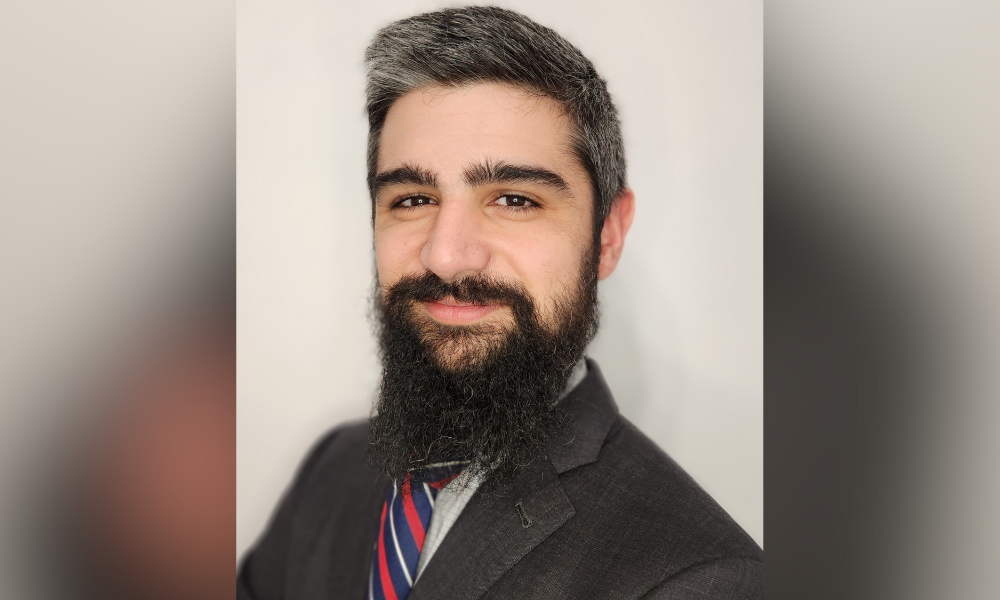
Court found witness's inclusion could have produced a different verdict

The Ontario Court of Appeal has ordered a new hate-speech trial for the anti-gay activist who distributed homophobic flyers at the Toronto Pride Parade.
The court ruled solely on the ground that the trial judge improperly excluded the evidence of an expert witness who planned to explain how the flyer’s theme perpetuated anti-gay tropes about sickness and disease.
In 2016, William Whatcott applied under a fake name to march in the Toronto Pride Parade. During the parade, rather than promoting sexual health education as Whatcott’s group claimed was the plan in their application, they handed out flyers warning of the dangers of the “homosexual lifestyle.”
A parade attendee reported Whatcott, and police charged him with one count of hate speech for wilfully promoting hatred against gay men in violation of s. 319(2) of the Criminal Code.
The trial judge acquitted Whatcott, and the Crown appealed on three grounds. One was that the judge erred in excluding evidence from an expert on anti-gay discrimination.
Lawyers for the two intervenors, the Association for Reformed Political Action Canada (ARPA) and Free to Care Society of Canada, say they are pleased that the court stopped short of endorsing the Crown’s position that would have expanded the scope of s. 139(2). The Crown argued that criticism against sexual practices inherent to a group’s identity is equivalent to promoting the destruction of that group, says Hatim Kheir, who represented Free to Care.
“They affirmed the current legal position, which is that moral criticism and debate is permissible, so long as it does not cross the line into promoting the vilification or detestation of an identifiable group,” he says.
“The Crown appeared to be saying that any kind of strong criticism of conduct central to a group’s identity is promoting hatred against the group,” says John Sikkema, who acted for the ARPA. The court did not ultimately endorse that position, he says. “From our point of view, that's good that this decision does not push the law in that direction. That was our main concern and the main reason for intervening.”
Free to Care’s website describes its purpose as supporting “pastors, educators, leaders, and fellow-Christ followers who want to uphold a biblical worldview in a post-modern world.” Kheir says Free to Care was established in response to Canada’s ban of “conversion therapy.” ARPA says it is a “grassroots Christian political advocacy organization” and that the “mission of ARPA Canada is to educate, equip, and encourage Reformed Christians to political action, and to bring a biblical perspective to our civil authorities.”
The flyers included photos of shirtless men hugging, photoshopped to have zombie eyes. It also had photos of a male anus with anal warts next to statistics on HPV infection rates among gay men and a list of other infections “homosexuals are at a high risk of acquiring.” There was a photo of a dead body, identified as an AIDS fatality, accompanied by text that said: “Many homosexuals falsely believe that sodomy is safe with the advancement of anti-retroviral therapy,” but “the truth is that an average of 15,000 people still succumb to AIDS annually in North America.” The flyers included the statements: “Natural law is clear, homosexuality is incompatible with human nature,” and “Disease, death, and confusion are the sad and sordid realities of the homosexual lifestyle.” The flyers also said that Whatcott’s group was “concerned about the spiritual, psychological and physical welfare of all potential homosexual pride attendees, so we want to give you this accurate information and encourage you to abstain from homosexuality.”
The trial judge had reasonable doubt as to whether the flyer promoted hatred. The defence called a theology professor as an expert witness. Professor Douglas Farrow testified that several statements in the flyer were rooted in religion and scripture. The Crown also called a medical expert to testify about the medical claims in the flyers.
The Crown’s proposed expert witness, Professor Nick Mulé, would have testified about common homophobic tropes concerning immorality, criminality, and sickness and disease.
Writing for the Court of Appeal’s panel, Justice Lorne Sossin said that given the importance of the other expert witnesses in the trial judge’s analysis, the excluded evidence from Mulé was “especially significant.” The Crown sought to elicit evidence from Mulé about the prominence of the health theme in the history of anti-gay discrimination. Whatcott, who had been the subject of a similar case at the Supreme Court of Canada in 2013 which had upheld Canada’s hate speech laws and struck down part of Saskatchewan’s Human Rights Code, opposed the evidence’s admission. He argued that anti-gay discrimination in Canada was “well-established and not in dispute.” The trial judge ultimately excluded the evidence because it was unnecessary, and “the cost-benefit analysis favoured exclusion,” said Sossin.
The court found that the failure to admit the expert evidence was “significant in light of the substantive test for what constitutes hate speech.” The trial judge’s exclusion of Mulé’s evidence was a legal error, and “given the contextual dynamics of the test for hate speech,” its inclusion could have produced a different verdict, said Sossin.